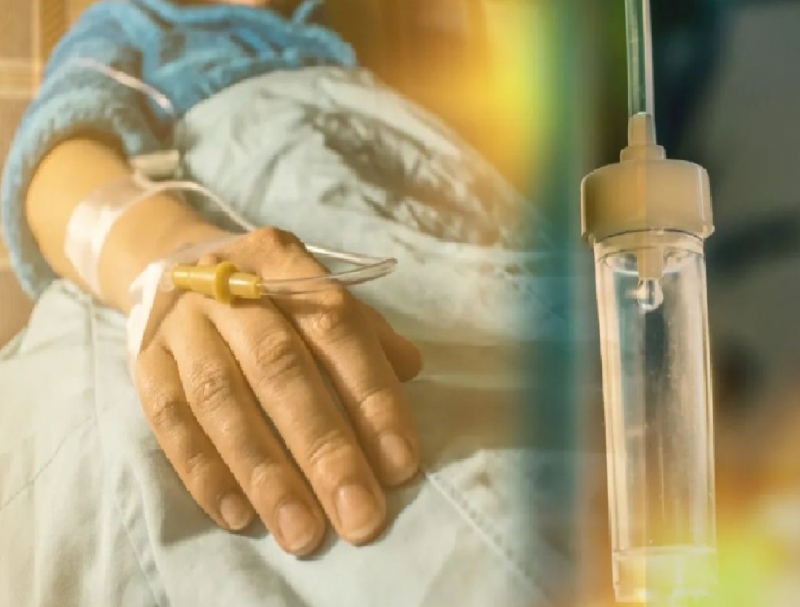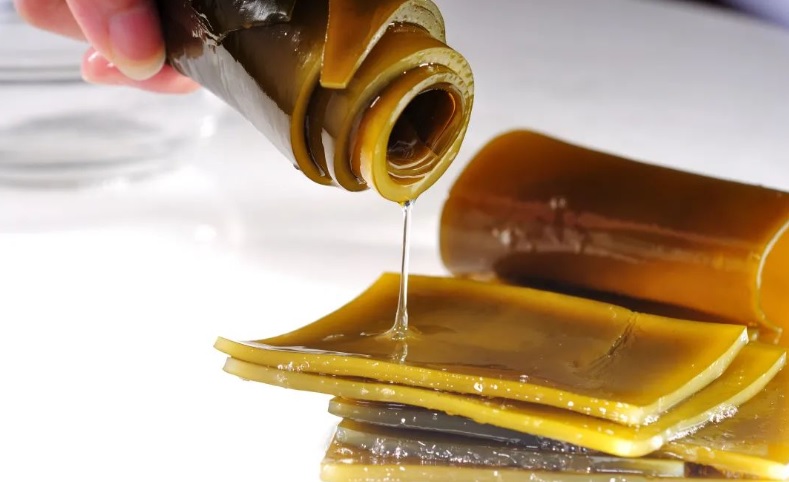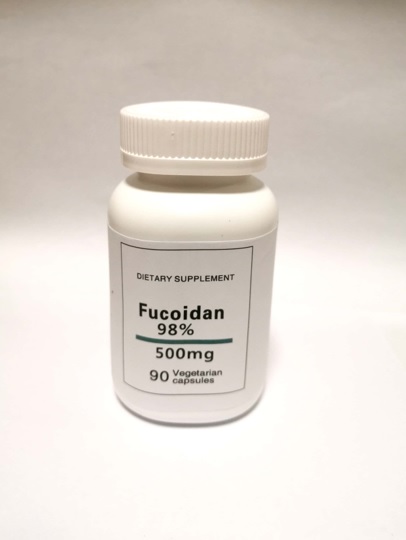
Fucoidan: good nutritional health food during chemotherapy
Radiation therapy is to illuminate the cancer tissue with radiomas such as X -ray, γ lines, electronic lines, and the maximum amount of biological effects that rely on radiation to kill the cancer tissue and reduce it. The principle is to destroy the chromosomes of the cells based on the energy brought by a large amount of radiation and stop cell growth. Therefore, cancer cells that can be used to fight rapid growth and division. Radiation therapy is the most commonly used way to treat cancer in direct or adjuvant. In addition, bone marrow transplantation must also be radiated throughout the body to eliminate all malignant cells.
Chemotherapy is a way to use chemical drugs to kill tumor cells, inhibit the growth and reproduction of tumor cells, and promote the differentiation of tumor cells. It is a systemic treatment method. It has a therapeutic effect, but while killing tumor cells, chemotherapy drugs also kill normal cells and immune (resistance) cells together.
The main side effects of radical chemotherapy include digestive tract reactions, bone marrow suppression, and liver and kidney dysfunction. It is directly manifested as nausea, vomiting, loss of appetite, uncomfortable stomach and stomach, annoying greasy, constipation, anemia, reducing white blood cells, etc. Inhibit the reduction of white blood cells and use "littering needle" (reorganized human granulocytes colonial stimulation factor), or due to the reduction of leukopenia, infection, fever, etc., and even interrupted chemotherapy due to severe side effects. Patients in chemotherapy often have weight loss, then weak, poor physical fitness, and decreased immune function, which is not conducive to the treatment of disease and physical rehabilitation.
The intestinal injury during chemotherapy is mainly manifested in the death of rapidly proliferated cropotomer cells and acute inflammation reactions inherent layer of acute inflammation. The death of hidden nest cells causes insufficient replacement of fluffy epithelium, destruction of mucosal barrier and mucosal inflammation. At present, the treatment of chemotherapy is used for preventing and treatment with radiation protective agents, amino salicylic acid drugs, growth citrins, intestinal mucosal protective agents, intestinal probiotics, etc., but the clinical effects are not good.

Fucoidan is a polysaccharide containing a large amount of L-fucose and sulfate groups. It is a component of brown algae and some marine vertebrates (such as sea urchin and sea cucumbers).
In recent years, fucoidan have been widely studied due to their rich biological activity. Multiple studies have proved that the fucoidan extracted from brown algae can effectively inhibit the recruitment of inflammatory models of rats white cells. Low -concentrated fucoidan (10 μg/ml) can increase the tranquility macrophage -induced nitrogen oxide compound enzyme enzymes Basic expression level, the release of nitric oxide (NO) in RAW264.7 cells that suppress fat polysaccharide stimulation, analyze the inhibitory effects of lithotraema polysaccharides on activation protein 1 (AP-1) activation may be blocked and anti-anti-resistant to its NO The effect of inflammation is related. Radiation therapy and chemotherapy can increase the level of inflammatory factors in patients. The intervention of fucoidan can inhibit the expression of inflammatory factor and stabilize inflammatory factors, thereby controlling the further development of inflammatory response and reducing the effect of inflammatory damage.
The clinical study of the improvement of radioactive pneumonia and radioactive enteritis in fucoidan show that the use of fucoidan in patients with radiotherapy reduces the incidence of radioactive pneumonia and radioactive enteritis, significantly reduced IL-6, IL-7, MMP-MMP- 9 such as radioactive injury signs, quantify and score the functional status of patients with pelvic tumor radiation therapy for patients with pelvic tumor treatment. As a result, the intervention of fucoidan can reduce the clinical symptoms of patients, improve their quality of life and treatment compliance.
Scientific researchers use chemotherapy drugs to build up mouse intestinal mucosa damage mice models, study the protection of glycotic polysaccharide intervention in the intestinal tract of chemotherapy patients. The experimental results show that fucoidan can reduce the expression of inflammatory factor and reduce the inflammatory response reaction. , Increase the expression of tightly connecting protein. At the same time, fucoidan can regulate the ratio of the auxiliary T cell TH1/TH2, increase the expression of immunoglobulin A (Iga), and protect the body's immune barrier; A degree, reduce the abundance of thick wall bacteria, reshape the intestinal flora that destruction of chemotherapy drugs, increase the diversity of flora, and alleviate intestinal mucosal damage caused by chemotherapy drugs.
In summary, the use of fucoidan in patients with chemotherapy can significantly improve the adverse reactions during chemotherapy, reduce the pain caused by radiotherapy and chemotherapy, improve the level of anti -inflammatory factors, improve the body's immunity, speed up normal tissue repair, enhances the quality of survival during chemotherapy, improves the completion rate of mortar chemotherapy, and promotes the rehabilitation after mortar chemotherapy.

Fucoidan capsules is 100% pure fucoidan extract powder dietary supplement, it is 500mg per capsule. In order to make it convenient to carry and take, we make it for capsules.
When to take fucoidan capsules?
In order to make the active ingredients effectively, it is recommended to take twice one day, one time is before breakfast, the second time is before going to bed
at night.
Important: The functional expression involved in this article comes from the authoritative literature, and the above is only a science of knowledge, and it cannot represent any treatment suggestions.
